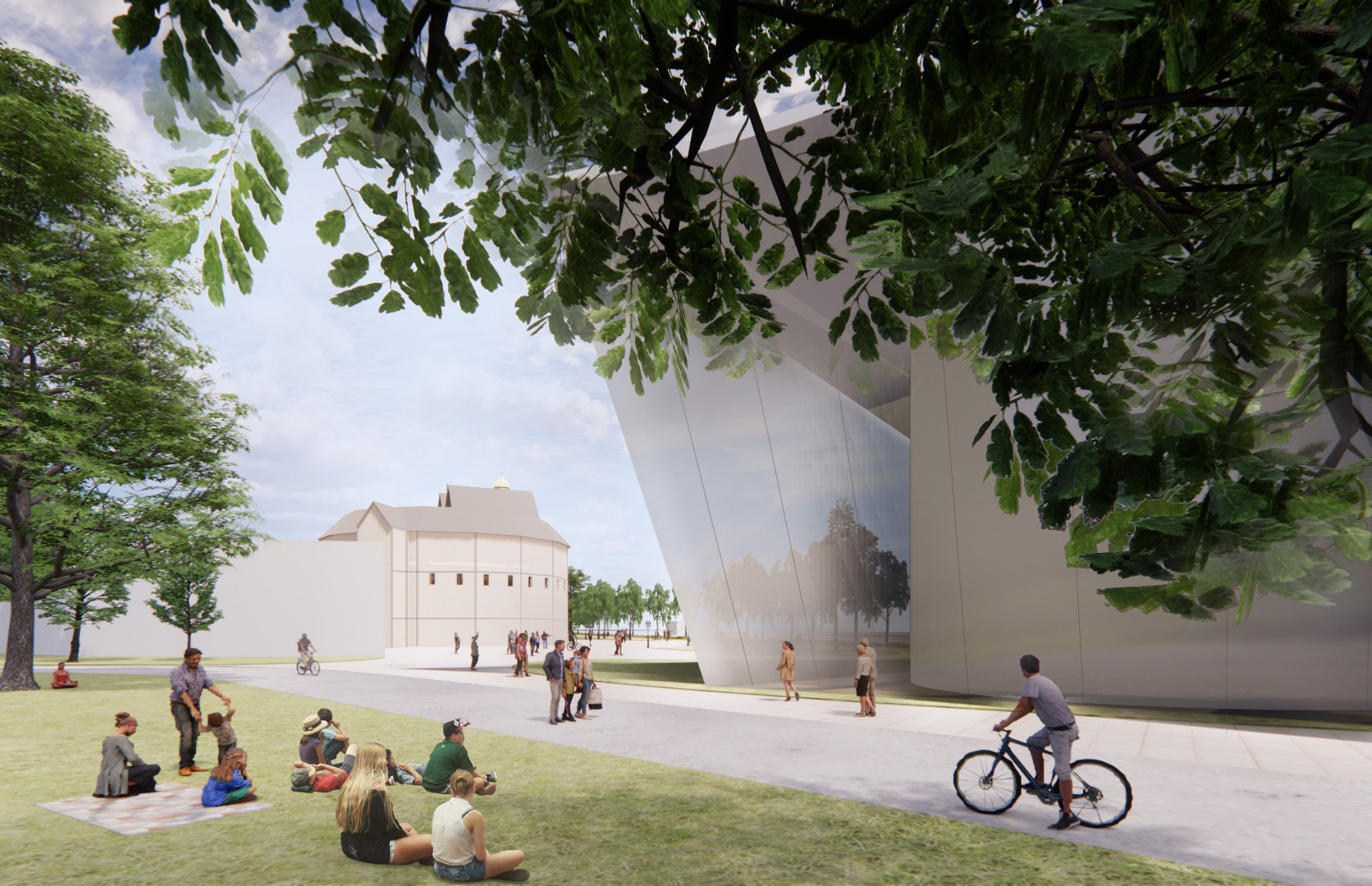By Jim Warren, AGC Artistic Director
If Shakespeare is the genius we’ve been taught that he is since our first day of compulsory education, then we have to acknowledge that the ways theatre-makers stage plays today have altered the message and mechanics of his plays over the intervening four hundred years. In essence, Genius Boy was writing for a different kind of theatrical environment, one in which the audience, in full light, became a part of the show. At the core of the AGC is the belief that by doing shows using the staging conditions for which Shakespeare wrote, we can recover some of the joys and some of the magic Genius Boy baked into the plays that sometimes get lost or smothered up when we play with all the cool theatre tricks we’ve invented in four centuries. To describe this vibrant, exciting performance style, we use a term I coined years ago called Shakespeare’s Staging Conditions (SSC).
The most important of Shakespeare’s Staging Conditions is shared light. Shakespeare wrote his plays to be performed outdoors, under the light of the sun, at two o’clock in the afternoon, for many hundreds of audience members standing and sitting around a stage that was thrust out in the middle of a three-story donut-shaped theatre. The audience, (which surrounded the stage with nobody more than fifty-four feet away from its edge), and the actors shared the same sunlight that could not be turned off or dimmed. The actors could see everyone in the audience and audience members could see each other’s faces too. We at the AGC believe that Shakespeare wrote that visible audience into every scene of every play. Audiences are part of the world of the play, becoming Henry V’s army, Hamlet’s confidante, and Cleopatra’s court, sharing in the laughter, triumph, and tragedy as thrilling participants rather than passive observers.
The Chorus in Shakespeare’s Henry V urges the visible audience: “Let us…on your imaginary forces work.” Imagination is key. We believe these plays were written to be visceral, in-your-face, communal entertainment experiences that relied on actors and audiences building worlds and taking journeys together – a Theatre of Imagination.
When live theatres started turning the lights off over the audience and stopped including the audience in the world of the play, they soon started trying to create movies live on stage. Spectacle replaced storytelling. Today, I believe movies are brilliant at creating their own worlds without any help from the audience. I believe live theatre that tries to be “movies onstage,” that tries to pretend the audience isn’t there, will eventually fail because movies will always be better at making movies. What live theatre with the lights on can uniquely do is create communities who travel through humanity every night together. That palpable creation of community at a live performance is the microcosm achievement of SSC that the American Globe Center can blow up to the macro level backstage, in our offices, in our community, in our schools. The teamwork – the inclusion, the shared vision and journey – works to create great shows onstage and a better world off the stage. Those are some of the lofty goals the AGC is pursuing with our performance style and Shakespeare’s Staging Conditions. And we think you – our audience, our teammates – will have a blast taking these journeys with us as part of these shows.
If you want to learn more, https://americanglobecenter.org/what-is-the-agc.
Or follow us on Facebook.




Sounds like a compelling idea and sadly based on the history of Shakespeare in Stratford, millions of dollars will be designated for the project and nothing will be accomplished.
What is now proposed is something quite different:
https://stratfordcrier.com/surprise-shakespeare-reveal/